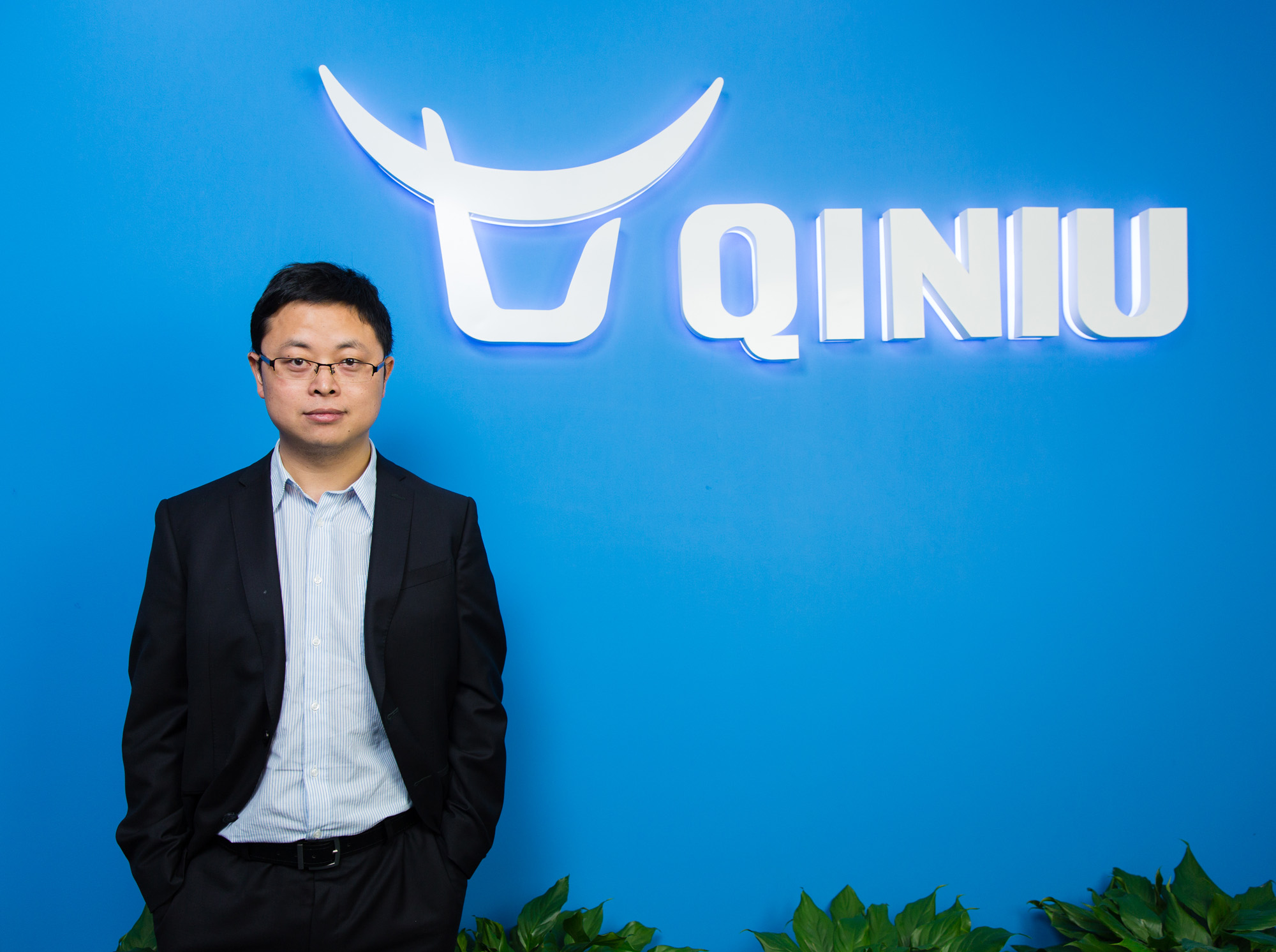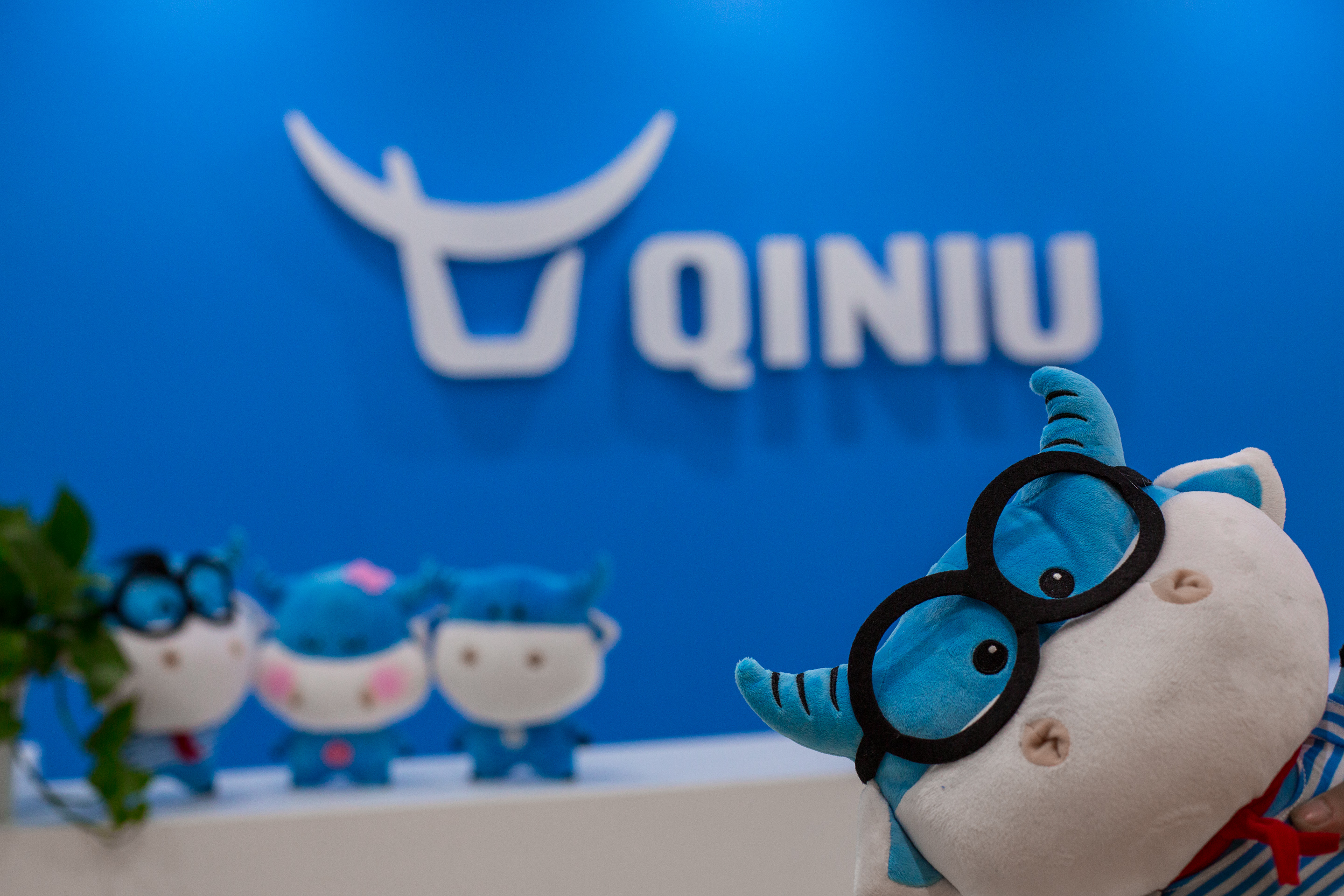
Hugo Lü, president of Qiniu. Photo credit: Qiniu.
Hugo Lü, president of Shanghai cloud services startup Qiniu, and I are talking about toothpaste.
“You can’t compete with people who are selling toothbrushes and toothpaste,” Hugo tells me. “That’s very hard.”
We’re discussing China’s cloud service industry, specifically the flurry of activity from Chinese tech giants. Last September, Tencent announced its plans to invest US$1.57 billion into cloud computing over the next five years. A month earlier, Alibaba made a similar announcement, investing US$1 billion into its cloud computing unit Alibaba Cloud. With Alibaba Cloud moving aggressively across the continent, it seems like the days of third party cloud startups like Qiniu are numbered.
However, the way Hugo sees it, China’s BAT (Baidu, Alibaba, Tencent) giants primarily compete on the lowest level of cloud services known as ‘IaaS’ or infrastructure-as-a-service, where the cloud is reduced to its most fundamental and tangible layer: data centers, storage, data partitioning, and more. Like toothbrushes and toothpaste, IaaS products are fairly standardized and compete on a few simple and hard metrics. That’s why Qiniu doesn’t mess with IaaS.
“In IaaS, I help you with the foundation and give you a pile of bricks, and the rest is up to you” explains Hugo. “But in PaaS, I will discuss what kind of house you want to build [and] help you build it.”
PaaS or platform-as-a-service is the layer above IaaS, where cloud service companies offer businesses specific technical building blocks for apps, like live streaming capabilities or video transcoding. It requires closer collaboration with clients than IaaS, at times comparable to consulting.
According to Hugo, PaaS startups can not only survive but thrive alongside BAT giants, which have the tendency to crush or pull nearby startups into their orbit.
“It’s hard to avoid competition with [China’s] tech giants,” says Xu Shiwei, the founder and CEO of Qiniu. “But we’re pretty confident. No matter what happens, BAT will not put too much effort at this layer.”
Qiniu has been under the shadow of China’s tech giants before. When the startup was founded in 2011, it offered cloud storage services, similar to Dropbox. Soon, Shiwei and Hugo realized that China’s cloud storage space was too one-dimensional for Qiniu to operate in. Baidu, Qihoo360, and other large Chinese internet companies were flooding the market with cheap cloud storage.
After three months, Qiniu pivoted to PaaS services directed at developers. Five years later, Qiniu is still alive and kicking, with a US$100 million series D round of funding under their belt from January.
“It’s the golden era for the PaaS model,” says Shiwei.
Leveraging China’s boom-and-bust tech cycle
The cloud service industry might be the most low-key industry in the tech world. Everyone knows the cloud is important – it supports all the magic that consumers delight over, like sharing photos on Facebook or binge-watching Stranger Things on Netflix – but almost nobody outside of the industry talks about it.
Qiniu is a great example. The five-year old startup offers multimedia-focused public PaaS services to over 500,000 companies and developers, from drone startup DJI to Ele.me, an O2O food delivery unicorn worth US$2.34 billion. Their technology powers video sharing on Meipai; the live streaming on Panda TV. Stacked together, Qiniu’s clients service millions of users in China, but most people would be hard-pressed to recognize Qiniu’s cow logo.
“Most of our clients don’t rely on core technology to compete,” says Hugo. “They depend on their business operations to compete.”

Qiniu means “seven cows” in Chinese. Photo credit: Qiniu.
He uses ride-hailing companies Kuaidi Dache and Didi Chuxing (previously Didi Dache) as an example. “They looked almost identical. One was orange, the other was green. The logos were different. But if you removed the colors and switched the logos, you wouldn’t know which was which.”
The battle between Kuaidi and Didi – which ended in a merger – wasn’t about their underlying technology, says Hugo. It was mainly about their ability to market and promote their product. This is common in China, where execution is often the driving factor behind winning a market.
On top of that, whenever a new industry or vertical emerges in China, it’s usually accompanied by a crowd of homogeneous startups, as shown in the Kuaidi and Didi example. “In China, the competition is very similar,” says Hugo. “If you can service one client, you can service all the other clients. And these clients don’t care whether or not you’re servicing their competitor. ”
“China’s investment industry also follows this principle,” he adds. “If I can’t invest in the first company, I’ll invest in the second, the third, the fourth – and see if I’m lucky.”
This quirky part of China’s business environment is one of the leading factors behind Qiniu’s success in the country. For every new technical scenario, such as uploading images, Qiniu has a new group of clients with almost the same set of requirements. This lowers the cost for Qiniu because it means the startup doesn’t have to create custom products for a small number of clients. However, the PaaS industry is sufficiently fragmented such that ecosystem-obsessed BAT giants are less likely to jump into it.
For example, last year, Qiniu shifted its focus to live streaming. With more than 100 live streaming apps in China, Qiniu will have no shortage of projects in the near future. Now, the company is looking even further ahead at products for virtual reality.
“PaaS and SaaS are becoming more and more segmented,” says Hugo. “There are more and more opportunities for startups. As long as you can do a good job in one of these segments, you can get clients.”
This post How this Chinese cloud startup escaped death by BAT appeared first on Tech in Asia.
from Tech in Asia https://www.techinasia.com/qiniu-paas-cloud-services
via IFTTT
No comments:
Post a Comment